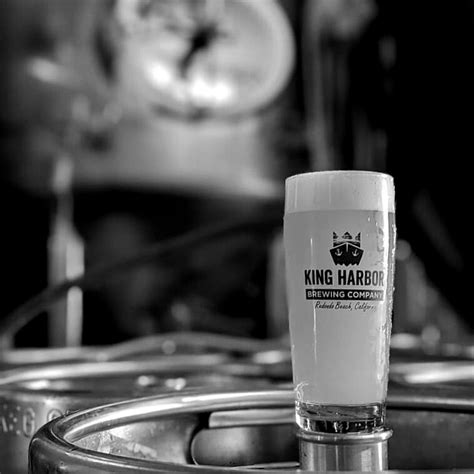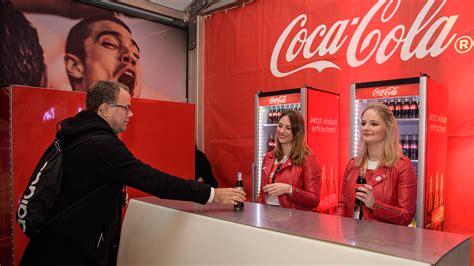
Local beer enthusiasts are mourning the impending closure of Crooked Hammock Brewery’s Middletown, Delaware, location, slated to shutter its doors at the end of June after nearly a decade of operation, citing unsustainable business conditions despite its popularity and community presence.
Crooked Hammock Brewery, a beloved fixture in the Middletown community, announced it will cease operations at its location on 316 Auto Park Drive at the end of June. The brewery, known for its family-friendly atmosphere, expansive outdoor space, and a diverse selection of craft beers and food, attributed the closure to challenging and unsustainable business conditions. Despite its popularity and positive reputation, the brewery has been unable to overcome the economic headwinds impacting the hospitality industry.
“We are so grateful for the Middletown community and all the support we’ve received over the years,” said Rich Garrahan, Crooked Hammock’s director of operations, in a statement. “This was an incredibly difficult decision, and we are heartbroken to have to close our doors.” The announcement has sent ripples of disappointment through the local community, where the brewery has served as a gathering place for families, friends, and beer aficionados alike.
The Middletown location, which opened in 2015, quickly became a popular destination, drawing crowds with its unique blend of a relaxed, backyard-style setting and high-quality craft beer. Crooked Hammock distinguished itself with its commitment to creating a welcoming environment for all ages, featuring a playground for children, lawn games for adults, and a diverse menu catering to various tastes. The brewery’s success extended beyond its physical location, as it actively participated in local events and collaborated with other businesses, solidifying its role as a community partner.
However, the brewery’s positive community standing wasn’t enough to shield it from the harsh realities of the current economic climate. The hospitality industry has faced numerous challenges in recent years, including rising costs of goods, labor shortages, and changing consumer preferences. These factors have placed immense pressure on businesses, forcing many to make difficult decisions in order to stay afloat. For Crooked Hammock’s Middletown location, the combination of these challenges proved insurmountable.
“The current economic climate has presented significant challenges for our Middletown location,” Garrahan explained. “Despite our best efforts, we have been unable to overcome these challenges and maintain a sustainable business model.” While the Middletown location is closing, Crooked Hammock Brewery will continue to operate its other locations in Lewes and North Myrtle Beach. The company also plans to maintain its wholesale distribution business, ensuring that its beers remain available to customers throughout the region.
The closure of Crooked Hammock’s Middletown location is a significant loss for the local community. The brewery not only provided a place for people to gather and socialize but also contributed to the local economy through job creation and tax revenue. Its departure will leave a void in the area’s social and economic landscape, and its absence will be felt by many.
In the wake of the announcement, community members have expressed their sadness and disappointment, sharing memories and expressing gratitude for the brewery’s contributions to the area. Many have taken to social media to voice their support for the brewery and its employees, while others have organized farewell events to celebrate the brewery’s legacy.
The closure of Crooked Hammock’s Middletown location serves as a reminder of the challenges facing small businesses in today’s economy. While the brewery’s story may be unique, its struggles are not uncommon. Many businesses are grappling with similar issues, and their survival will depend on their ability to adapt and innovate in the face of adversity.
Detailed Analysis and Expanded Context
The closure of Crooked Hammock Brewery in Middletown represents a microcosm of the broader challenges facing the craft brewing industry and the hospitality sector as a whole. While the brewery enjoyed local popularity and a strong community presence, these factors were ultimately insufficient to counteract the powerful economic forces at play. Understanding the context surrounding this closure requires examining several key elements: the economic climate, industry-specific challenges, and the brewery’s business model.
Economic Climate: The current economic climate is characterized by a confluence of factors that have created a particularly difficult environment for businesses, especially those in the hospitality sector. These include:
- Inflation: Rising inflation rates have increased the cost of goods and services across the board. For breweries, this translates to higher prices for raw materials such as hops, barley, and aluminum cans, as well as increased transportation and energy costs.
- Labor Shortages: The labor market remains tight, with many businesses struggling to find and retain qualified employees. This has led to increased labor costs, as companies must offer higher wages and benefits to attract and retain workers.
- Supply Chain Disruptions: Ongoing supply chain disruptions have made it difficult for businesses to obtain the materials and equipment they need to operate efficiently. This has resulted in increased costs and delays, further straining profitability.
- Changing Consumer Behavior: Consumer spending patterns have shifted in recent years, with many people cutting back on discretionary spending due to economic uncertainty. This has led to decreased sales for businesses in the hospitality sector, as people are less likely to dine out or visit breweries.
Industry-Specific Challenges: In addition to the broader economic challenges, the craft brewing industry faces its own unique set of obstacles:
- Increased Competition: The craft brewing industry has experienced rapid growth in recent years, leading to increased competition. This makes it more difficult for breweries to stand out from the crowd and attract customers.
- Saturation: Some markets are becoming saturated with breweries, making it challenging for new entrants to gain a foothold. This is particularly true in areas with a high concentration of craft breweries.
- Evolving Consumer Preferences: Consumer preferences are constantly evolving, and breweries must adapt to stay relevant. This requires ongoing innovation and experimentation with new styles and flavors.
- Regulatory Complexity: The craft brewing industry is subject to a complex web of regulations at the federal, state, and local levels. Navigating these regulations can be time-consuming and expensive.
Crooked Hammock’s Business Model: While Crooked Hammock enjoyed local popularity, certain aspects of its business model may have contributed to its vulnerability in the current economic climate:
- Reliance on On-Premise Sales: The Middletown location relied heavily on on-premise sales, meaning that a significant portion of its revenue came from customers visiting the brewery to drink and eat. This made it particularly vulnerable to economic downturns and changes in consumer behavior.
- Large Footprint: The Middletown location featured a large outdoor space, which required significant maintenance and upkeep. This added to the brewery’s operating costs and may have made it more difficult to achieve profitability.
- Family-Friendly Focus: While the family-friendly atmosphere was a key differentiator, it may have also limited the brewery’s appeal to certain demographics. For example, younger adults may have preferred a more traditional bar or pub setting.
The combination of these factors created a perfect storm for Crooked Hammock’s Middletown location. While the brewery was able to build a strong brand and cultivate a loyal following, it was ultimately unable to overcome the economic headwinds impacting the hospitality industry.
Community Impact and Economic Implications
The closure of Crooked Hammock Brewery in Middletown has significant implications for the local community and the broader economy. The brewery served as a gathering place for residents, a tourist destination for visitors, and a source of employment for local workers. Its departure will leave a void in the area’s social and economic landscape.
Community Impact:
- Loss of a Gathering Place: Crooked Hammock provided a welcoming and inclusive environment for people of all ages. Its closure will eliminate a popular spot for families, friends, and neighbors to come together and socialize.
- Reduced Social Cohesion: The brewery played a role in fostering a sense of community in Middletown. Its absence may lead to reduced social cohesion and a decline in community spirit.
- Impact on Local Events: Crooked Hammock actively participated in local events and festivals, contributing to the vibrancy of the community. Its closure will leave a void in the local events calendar.
Economic Implications:
- Job Losses: The closure of the brewery will result in the loss of jobs for local workers. This will have a direct impact on the affected employees and their families.
- Reduced Tax Revenue: Crooked Hammock contributed to the local economy through the payment of taxes. Its closure will reduce the amount of tax revenue available to the local government.
- Decreased Tourism: The brewery was a tourist destination, attracting visitors from outside the area. Its closure may lead to a decrease in tourism and a decline in revenue for other local businesses.
- Impact on Local Suppliers: Crooked Hammock sourced many of its ingredients and supplies from local businesses. Its closure will have a negative impact on these suppliers.
The closure of Crooked Hammock Brewery is a reminder of the importance of supporting local businesses. By patronizing local establishments, residents can help ensure that they remain viable and continue to contribute to the community.
Possible Future Scenarios
While the closure of Crooked Hammock’s Middletown location is a setback for the community, it is not necessarily the end of the story. Several possible scenarios could unfold in the future:
- Reopening Under New Ownership: It is possible that another brewery or restaurant could take over the space and reopen it under new ownership. This would provide a new gathering place for the community and create new job opportunities.
- Redevelopment of the Site: The site could be redeveloped for a different purpose, such as residential housing or commercial retail. This would bring new investment to the area and generate new tax revenue.
- Continued Operation of Other Locations: Crooked Hammock Brewery will continue to operate its other locations in Lewes and North Myrtle Beach. This will ensure that the brand remains alive and that its beers remain available to customers.
- Focus on Wholesale Distribution: Crooked Hammock plans to maintain its wholesale distribution business, which will allow it to continue selling its beers to bars, restaurants, and retailers throughout the region. This will help to offset the loss of revenue from the Middletown location.
The future of the site and the Crooked Hammock brand remains uncertain. However, the community can play a role in shaping the outcome by supporting local businesses and advocating for responsible development.
Lessons Learned and Industry Outlook
The closure of Crooked Hammock’s Middletown location provides valuable lessons for other breweries and businesses in the hospitality sector. It highlights the importance of adapting to changing economic conditions, diversifying revenue streams, and maintaining a strong focus on customer service.
Lessons Learned:
- Importance of Adaptability: Businesses must be able to adapt to changing economic conditions in order to survive. This may require making difficult decisions, such as cutting costs, raising prices, or changing the business model.
- Diversification of Revenue Streams: Relying too heavily on a single revenue stream can make a business vulnerable to economic downturns. Diversifying revenue streams, such as through wholesale distribution or online sales, can help to mitigate this risk.
- Focus on Customer Service: Providing excellent customer service is essential for building a loyal customer base. This can help to insulate a business from competition and economic uncertainty.
- Community Engagement: Engaging with the local community can help to build goodwill and support for a business. This can be particularly important during times of economic hardship.
Industry Outlook:
The craft brewing industry is expected to continue to grow in the coming years, but at a slower pace than in the past. The industry will face increasing competition, changing consumer preferences, and a complex regulatory environment. Breweries that are able to adapt to these challenges will be best positioned for success.
The closure of Crooked Hammock’s Middletown location is a reminder of the challenges facing small businesses in today’s economy. However, it is also an opportunity to learn from the past and build a stronger, more resilient business community for the future.
Community Reactions and Farewell Events
The announcement of Crooked Hammock Brewery’s closure in Middletown has been met with an outpouring of support and sadness from the local community. Patrons, former employees, and local businesses alike have expressed their disappointment and shared fond memories of the brewery.
Social media platforms have been flooded with messages of support for Crooked Hammock, with many users sharing photos and stories from their time spent at the brewery. A common theme among these messages is the brewery’s role as a gathering place for families and friends, and its contribution to the community’s social fabric.
Several farewell events have been organized to celebrate Crooked Hammock’s legacy in Middletown. These events provide an opportunity for community members to come together, share memories, and say goodbye to the brewery.
The outpouring of support for Crooked Hammock highlights the importance of local businesses in building strong communities. When a local business closes, it is not just a loss for the owners and employees, but also for the community as a whole.
The community’s response to Crooked Hammock’s closure is a testament to the brewery’s positive impact on Middletown. While the brewery’s physical presence will be missed, its legacy will live on in the memories of those who frequented it.
FAQ (Frequently Asked Questions)
-
Why is Crooked Hammock Brewery closing its Middletown location?
- The brewery cited “challenging and unsustainable business conditions” as the primary reason for the closure, despite its popularity and community presence. These conditions likely include rising costs of goods, labor shortages, and shifting consumer preferences.
-
When will the Middletown location officially close?
- The last day of operation for the Crooked Hammock Brewery in Middletown is slated for the end of June.
-
Will Crooked Hammock Brewery continue to operate its other locations?
- Yes, Crooked Hammock Brewery will continue to operate its locations in Lewes, Delaware, and North Myrtle Beach, South Carolina.
-
What will happen to the employees of the Middletown location?
- The article does not explicitly state what will happen to the employees. However, the closure will undoubtedly result in job losses for the staff at the Middletown location.
-
Will Crooked Hammock beers still be available after the Middletown location closes?
- Yes, Crooked Hammock Brewery plans to maintain its wholesale distribution business, ensuring that its beers remain available to customers throughout the region at other retailers and establishments.









